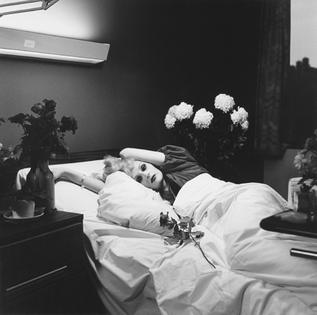A Quote by A. S. Byatt
Narration is as much a part of human nature as breath and the circulation of the blood.... storytelling is intrinsic to biological time, which we cannot escape. Life, Pascal said, is like living in a prison from which every day fellow prisoners are taken away to be executed. We are all, like Scheherazade, under sentence of death, and we all think of our lives as narratives, with beginnings, middles and ends.
Quote Topics
Away
Beginnings
Biological
Blood
Breath
Cannot
Circulation
Day
Death
Ends
Escape
Every
Every Day
Executed
Fellow
Human
Human Nature
Intrinsic
Life
Like
Lives
Living
Much
Narration
Narratives
Nature
Our
Our Lives
Part
Pascal
Prison
Prisoners
Said
Sentence
Storytelling
Taken
Think
Time
We Cannot
Which
Related Quotes
The same authorities who insist upon beginnings, middles, and ends, declare that Great Literature (by which they mean the stories they have been taught to admire) is about love and death, while mere popular fiction like this is about sex and violence. One reader's sex, alas, is another's love; and one's violence, another's death.
For a year after that was done to me I wept every day at the same hour and for the same space of time. That is not such a tragic thing as possibly it sounds to you. To those who are in prison tears are a part of every day's experience. A day in prison on which one does not weep is a day on which one's heart is hard, not a day on which one's heart is happy.
Life has always seemed to me like a plant that lives on its rhizome. Its true life is invisible, hidden in the rhizome. The part that appears above ground lasts only a single summer. Then it withers away—an ephemeral apparition. When we think of the unending growth and decay of life and civilizations, we cannot escape the impression of absolute nullity. Yet I have never lost a sense of something that lives and endures underneath the eternal flux. What we see is the blossom, which passes. The rhizome remains.
Humanity is a biological species, living in a biological environment, because like all species, we are exquisitely adapted in everything: from our behavior, to our genetics, to our physiology, to that particular environment in which we live. The earth is our home. Unless we preserve the rest of life, as a sacred duty, we will be endangering ourselves by destroying the home in which we evolved, and on which we completely depend.
One realizes that human relationships are the tragic necessity of human life; that they can never be wholly satisfactory, that every ego is half the time greedily seeking them, and half the time pulling away from them. In those simple relationships of loving husband and wife, affectionate sisters, children and grandmother, there are innumerable shades of sweetness and anguish which make up the pattern of our lives day by day, though they are not down in the list of subjects from which the conventional novelist works.
In return for financial support will advocate admission of Jews to England; This however impossible while Charles living. Charles cannot be executed without trial on adequate grounds for which do not presently exist. Therefore advise that Charles be assassinated, but will have nothing to do with arrangements for procuring an assassin, though willing to help in his escape. [King Charles I was in prison at the time].
The desire for story is very, very deep in human beings. We are the only creature in the world that does this; we are the only creature that tells stories, and sometimes those are true stories and sometimes those are made up stories. Then there are the larger stories, the grand narratives that we live in, which are things like nation and family and clan and so on. Those stories are considered to be treated reverentially. They need to be part of the way in which we conduct the discourse of our lives and to prevent people from doing something very damaging to human nature.
In the last volume of In Search of Lost Time, Proust compares himself to Scheherazade: he says he has finally understood the nature of the book he has to write, just at the moment when his advancing years and declining health have made him doubt that he's going to live long enough to write it. So he has to write against death like Scheherazade.
The reality of the Life Review is becoming part of our every day understanding. We know that after death, we have to look at our lives again; and we’re going to agonize over every missed opportunity, over every case in which we failed to act. This knowledge is contributing to our determination to pursue every intuitive image that comes to mind, and keep it firmly in awareness. We’re living life in a more deliberate way. We don’t want to miss a single important event. We don’t want the pain of looking back later and realizing that we blew it, that we failed to make the right decisions.





































